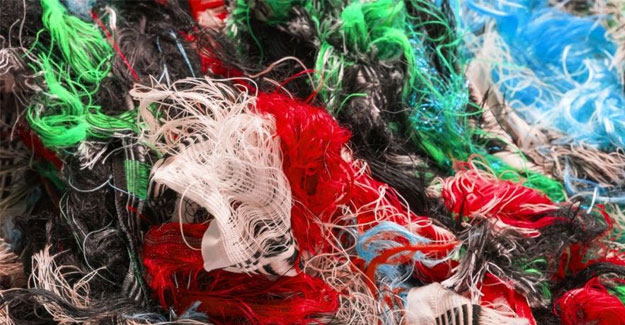
Eleven European Countries Seek Ambitious Measures To Tackle Waste In Textile Products
Eleven European countries have recently, in a joint letter, called for ambitious measures to tackle waste in textiles. The joint letter responds to the European Commission’s Circular Economy Action Plan that lays out, among other matters, plans for a comprehensive EU strategy for textiles. The countries involved comprise Austria, Belgium, Denmark, Finland, France, Germany, Luxembourg, the Netherlands, Norway, Spain, and Sweden. They emphasise the need for both an ambitious and comprehensive strategy that applies to the whole value chain of textile products. The aim is also to achieve Europe’s climate ambitions and assist the European textile industry with becoming more competitive and sustainable. Europeans are said to be consuming 26kg of textiles per person every year. According to the European Commission, and the latest fashion trends such as ‘fast fashion’, items are often used for shorter periods, meaning 11kg are being discarded per person each year. The joint letter serves as a follow‑up to the Roundtable on Textiles that occurred on 1 June 2021 when the Netherlands invited EU countries to exchange views on sustainability in textiles. Thereafter, a joint letter was sent to European Commission leaders, including Environment Commissioner Virginijus Sinkevičius and EU climate chief Frans Timmermans. The letter sought clear, ambitious targets for textile collection, reuse, and recycling. Currently, it is believed that less than 1% of textiles worldwide are recycled into new textiles and the majority of recycling is ‘downcycling’, which lowers the quality of the material. The eleven European countries furthermore call on the European Commission to explore which materials could have textile‑to‑textile recycled content requirements, which would boost recycling rates. The eleven countries also propose that more research should be conducted to encourage the extended use of clothes; they note that measures should be considered to prevent the destruction of unsold garments, which some retailers are believed to resort to. The European Commission announced earlier this year that it would support and guide the EU textile industry in emerging from the Covid‑19 pandemic. However, there has been discussion that textile transparency issues will not vanish with the upcoming EU strategy on sustainable textiles and might fall short regarding traceability of textile raw materials. Transparency issues can arise further upstream in the supply chain, with consumers increasingly concerned about issues including fair labour, sustainable resourcing, and the environment. The expected strategy on sustainable textiles will be rooted in the objectives of the EU Green Deal but will also be moulded on the basis of inputs from the industry and other stakeholders. Because of this, an open public consultation was launched in May 2021 and closed in August 2021, also supported by a series of dedicated workshops. The adoption of the strategy is foreseen in the coming months. The strategy’s primary goal is to help transition the textile ecosystem so that it is consistent with climate neutrality and circularity principles. It is to be expected that products will need to be designed to last longer, be more reusable, repairable and easier to recycle. The production process will also need to be more energy‑efficient and sustainable. With this backdrop, it is also reported that the Commission does not seem to have much in the pipeline considering the traceability of the supply chain for textile raw materials, such as cotton or wool. EU countries only produced 340,000 tonnes of cotton in 2018, representing only 1% of world production. Therefore, the bloc is importing 55% of what it needs from non‑EU countries. Turkey, Pakistan, India, and mainland China alone account for 43% of all cotton imports into the EU. It is also worth noting that in the past five years, both the US and Japan increased their share of cotton imports into the EU, a market that is entirely free for cotton, in the sense that – reportedly – there are no import duties or export subsidies. Finally, at this moment, it is considered unlikely that the Commission will address the complex transparency issue across the supply chain in its textile strategy. However, it is expected to consider the strengths and vulnerabilities of the EU textiles ecosystem and discuss how circular business models and regulation can assist in moving towards a circular textiles economy.
Textile Excellence
If you wish to Subscribe to Textile Excellence Print Edition, kindly fill in the below form and we shall get back to you with details.












